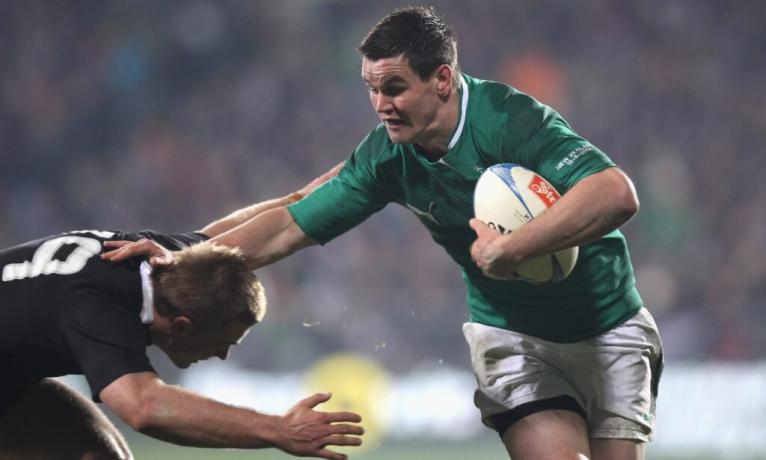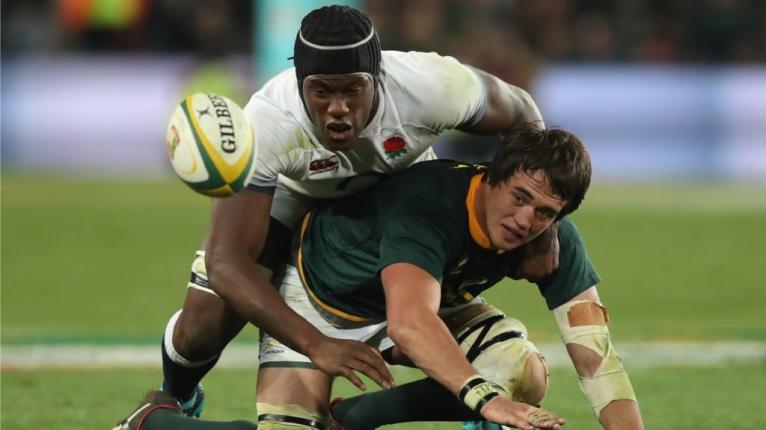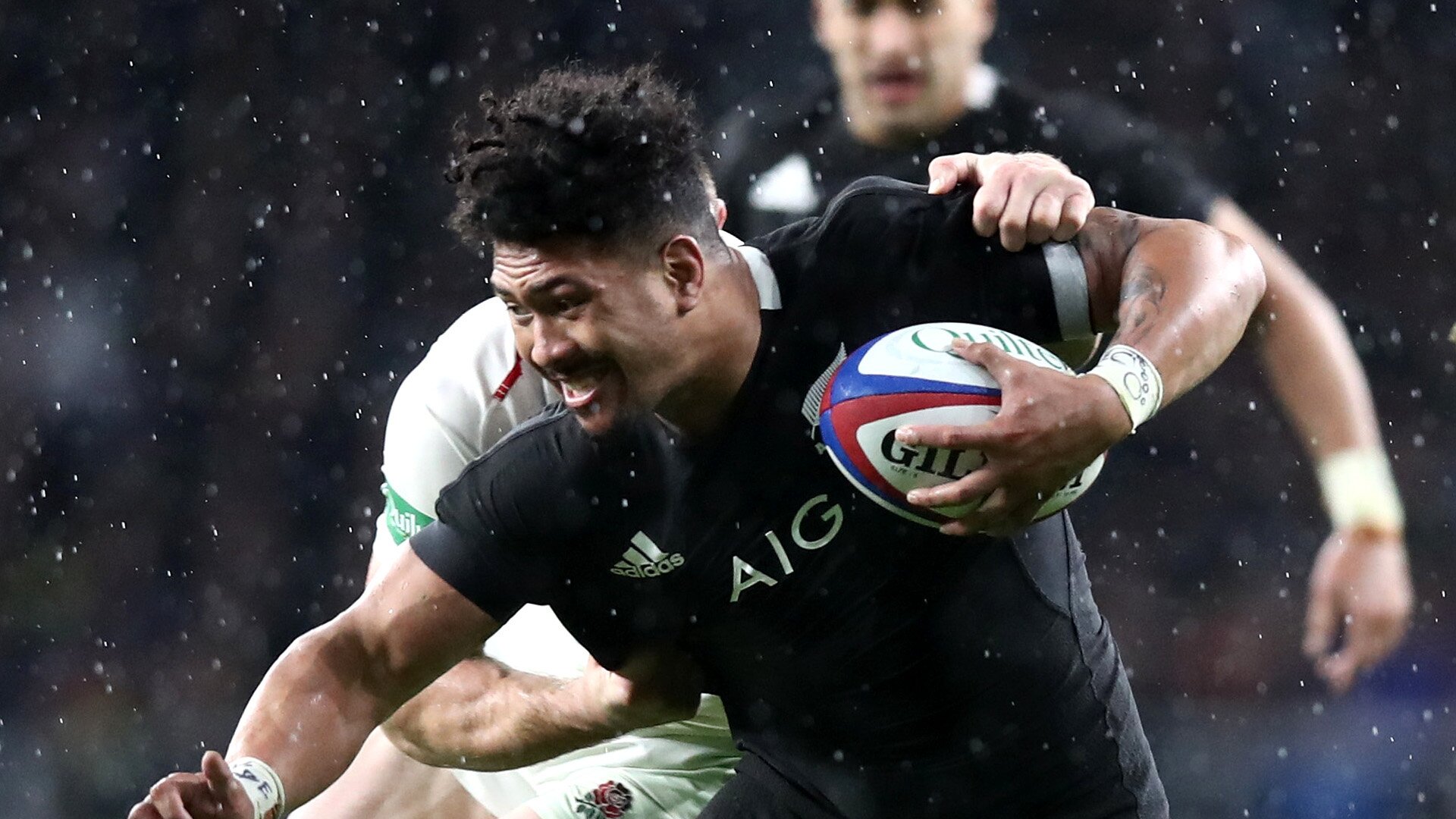The RugbyPass Index 'World XV'

International rugby is now all but finished for 2018, as the November internationals are set to come to a close this weekend and the only fixture left to play after that is between the Barbarians and Argentina at Twickenham.
Ireland garnered the headlines with their composed downing of the All Blacks in Dublin, South Africa continued to show they are a force to be reckoned with and Wales maintained their upward trend as they attempt to peak at the upcoming Rugby World Cup.
We have put together a World XV based purely on the RugbyPass Index, but which selections are the most controversial? Would Peter Horne or Luke McGrath be making anyone’s World XV? The numbers suggest that perhaps they should…
- Damian McKenzie, New Zealand (92)
There may have been some early teething issues, but McKenzie has largely translated his scintillating Super Rugby form onto the international stage with the All Blacks, thus securing his spot at the top of these rankings. Perhaps the most notable talking point is the absence of Israel Folau, who cannot even crack the top three, with Wales’ Mr Reliable Leigh Halfpenny and Scotland’s incisive Stuart Hogg taking second and third respectively.
Silver: Leigh Halfpenny, Wales (91)
Bronze: Stuart Hogg, Scotland (87)
Continue reading below…
Watch: Pete Samu and Izack Rodda talk to the media ahead of Australia’s match with England.
- Liam Williams, Wales (91)
Williams’ spot here is a sign of the evolution and growing ambition of Wales under Warren Gatland of late. Being part of a Saracens side running roughshod over English rugby doesn’t hurt, either, as his influence in scoring moments metric is running off the charts some weeks. The fact Williams has been able to see off competition from New Zealand’s Ben Smith should tell you all about his form over the last year.
Silver: Ben Smith, New Zealand (89)
Bronze: Cheslin Kolbe, South Africa (88)
- Jack Goodhue, New Zealand (91)
The transition for Goodhue from Super Rugby to international rugby has been as seamless as anyone could have hoped for and that has been reflected in his impressive RPI score. He seems to have cemented himself into the 13 jersey for the All Blacks going into a Rugby World Cup year and his form and skill set in that spot will allow Steve Hansen to make an informed and complementary decision at inside centre.
Silver: Garry Ringrose, Ireland (87)
Bronze: Huw Jones, Scotland (85)
- Peter Horne, Scotland (87)
A surprise name here for many and perhaps an indication of a position more in-flux across the world’s top teams, as much as it is of Horne’s impressive form. The performances and results for Scotland and Glasgow Warriors don’t lie, though, and Horne merits his position here. It should be noted, however, that had Owen Farrell continued in his role at inside centre for England, he would have commanded this spot with an RPI of 90.
Silver: Ryan Crotty, New Zealand (87)
Bronze: Robbie Henshaw, Ireland (86)
- Jacob Stockdale, Ireland (89)
Stockdale is on track to break all Irish rugby try-scoring records and his potent offensive ability has been felt by the likes of New Zealand, England and Australia this year. Having been shut out by Ireland and England, Rieko Ioane’s RPI has dropped somewhat, with his influence on scoring moments taking a particular knock.
Silver: Steffan Evans, Wales (88)
Bronze: Rieko Ioane, New Zealand (87)
- Jonathan Sexton, Ireland (92)
Having been in a ding-dong battle with Beauden Barrett all season long for the accolade of top fly-half in the game, Sexton has surely put that debate to bed over the last month. The Leinsterman has guided his province and country to an unprecedented season of success, whilst Barrett has come under intense pressure from his deputy, Richie Mo’unga.
Silver: Beauden Barrett, New Zealand (92)
Bronze: Richie Mo’unga, New Zealand (91)

- Luke McGrath, Ireland (87)
Another surprise inclusion here, with Conor Murray’s stock having taken a hit due to injury and Aaron Smith’s level of performance falling a bit shy of his usual lofty standards. McGrath has prospered briefly for Ireland, with the majority of his RPI score coming from his effervescent performances with Leinster, where he arguably doesn’t get the credit for his creative work, due to the presence of Sexton.
Silver: Gareth Davies, Wales (86)
Bronze: Aaron Smith, New Zealand (85)
- Cian Healy, Ireland (86)
What a resurgence it has been for Healy, with many people writing off his career a couple of years ago when he was battling through a number of significant injuries. He has been in fine form in 2018, taking his starting spot back from provincial teammate Jack McGrath. Fans of French rugby will welcome the sight of one of their props back in the mix, with Dany Priso hot on the heels of the Irishman.
Silver: Dany Priso, France (85)
Bronze: Steven Kitshoff, South Africa (82)
- Malcolm Marx, South Africa (92)
An errant display at the lineout against England did bring a momentary dip for Marx, but his performances otherwise have been more than impressive enough to keep him at the top of the rankings, despite intense competition from Scotland’s Fraser Brown. Marx’s improved accuracy at the lineout this year, the England game aside, has been a key component behind his rise to this level.
Silver: Fraser Brown, Scotland (92)
Bronze: Codie Taylor, New Zealand (91)
- Tadhg Furlong, Ireland (88)
If there’s a surprise here, it’s that Vincent Koch has got so close to Furlong. The Irishman has been in imperious form for a couple of years now and is widely regarded as one of the very best players on the planet, but the South African is not far behind him and, like Williams earlier, is profiting from an undefeated season to date with high-scoring Saracens.
Silver: Vincent Koch, South Africa (88)
Bronze: Rabah Slimani, France (84)
- Devin Toner, Ireland (91)
There are just 100ths of a point between Toner, Eben Etzebeth and Brodie Retallick and it’s a mark of the quiet efficiency of the lock’s play this year that he is able to oust two such prolific players from the top spot. His lineout work is understandably excellent, but it’s his defence in the loose and his involvement in attacking movements which have seen him keep pace with the higher profile stars of the southern hemisphere.
Silver: Eben Etzebeth, South Africa (91)
Bronze: Brodie Retallick, New Zealand (91)
- Maro Itoje, England (92)
Itoje is England’s sole representative in this XV, a mark of both their struggles earlier in the year and the intense competition that has come on from Irish and South African players in particular over the last 12 months. The Englishman gets in just ahead of Ireland’s James Ryan, although if there were no distinction between number fours and number fives, both Itoje and Ryan would be the starting locks, with RPI scores of 92.
Silver: James Ryan, Ireland (92)
Bronze: Sam Skinner, Scotland (90)

- Peter O’Mahony, Ireland (93)
O’Mahony currently boasts the second highest RPI around and is clearly a class apart at the position. Even the closest challenger, Scott Barrett, is a lock at Super Rugby level and has played a role on the flank for the All Blacks due to the potency of the combination of Retallick and Sam Whitelock in the engine room, as much as anything else. O’Mahony has set himself up as the premier defensive lineout threat in world rugby.
Silver: Scott Barrett, New Zealand (90)
Bronze: Liam Squire, New Zealand (85)
- Ardie Savea, New Zealand (93)
From the second highest RPI score to the highest, Savea has flourished in 2018, making the most of the unfortunate neck injury suffered by Sam Cane. The combination of the freedom he has been given in Super Rugby and the increased playing time with the All Blacks, has seen Savea’s talent shine and register an RPI score reflective of it.
Silver: Sean O’Brien, Ireland (88)
Bronze: Matt Todd, New Zealand (88)
- Kieran Read, New Zealand (92)
Read is back at the very top following a significant amount of missed time in recent seasons, as well as injuries affecting the years of both Billy Vunipola and Taulupe Faletau. The influence Read exerts in the moments building up to a score separate him from the competition here, as well as his lineout ability, where he is one of, if not the most adept offensive jumping threat currently plying their trade in the international game.
Silver: CJ Stander, Ireland (90)
Bronze: Warren Whiteley, South Africa (89)
Watch: Jim Hamilton visits Jamie George’s house in St Albans for the latest edition of Rugby Pads.






















